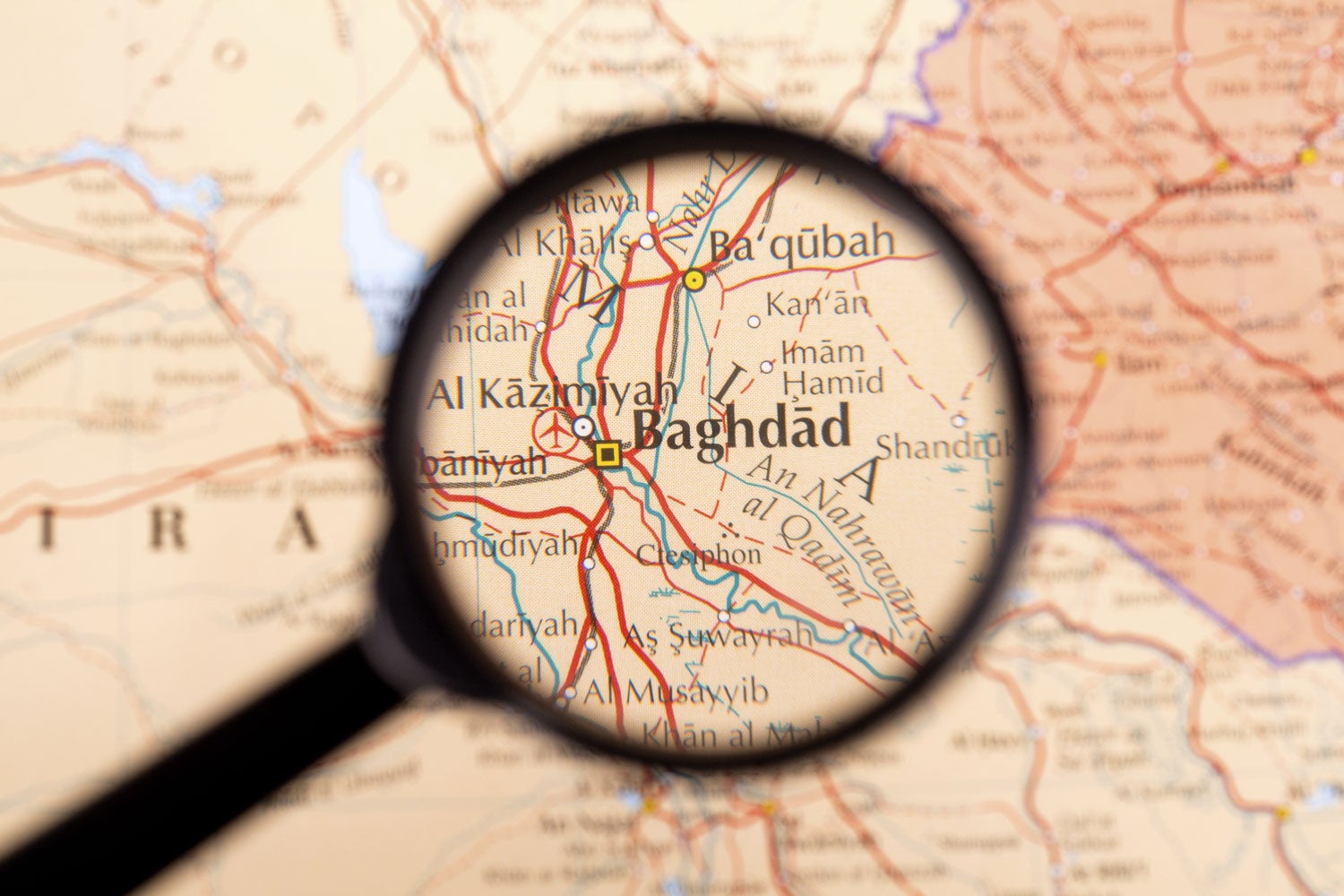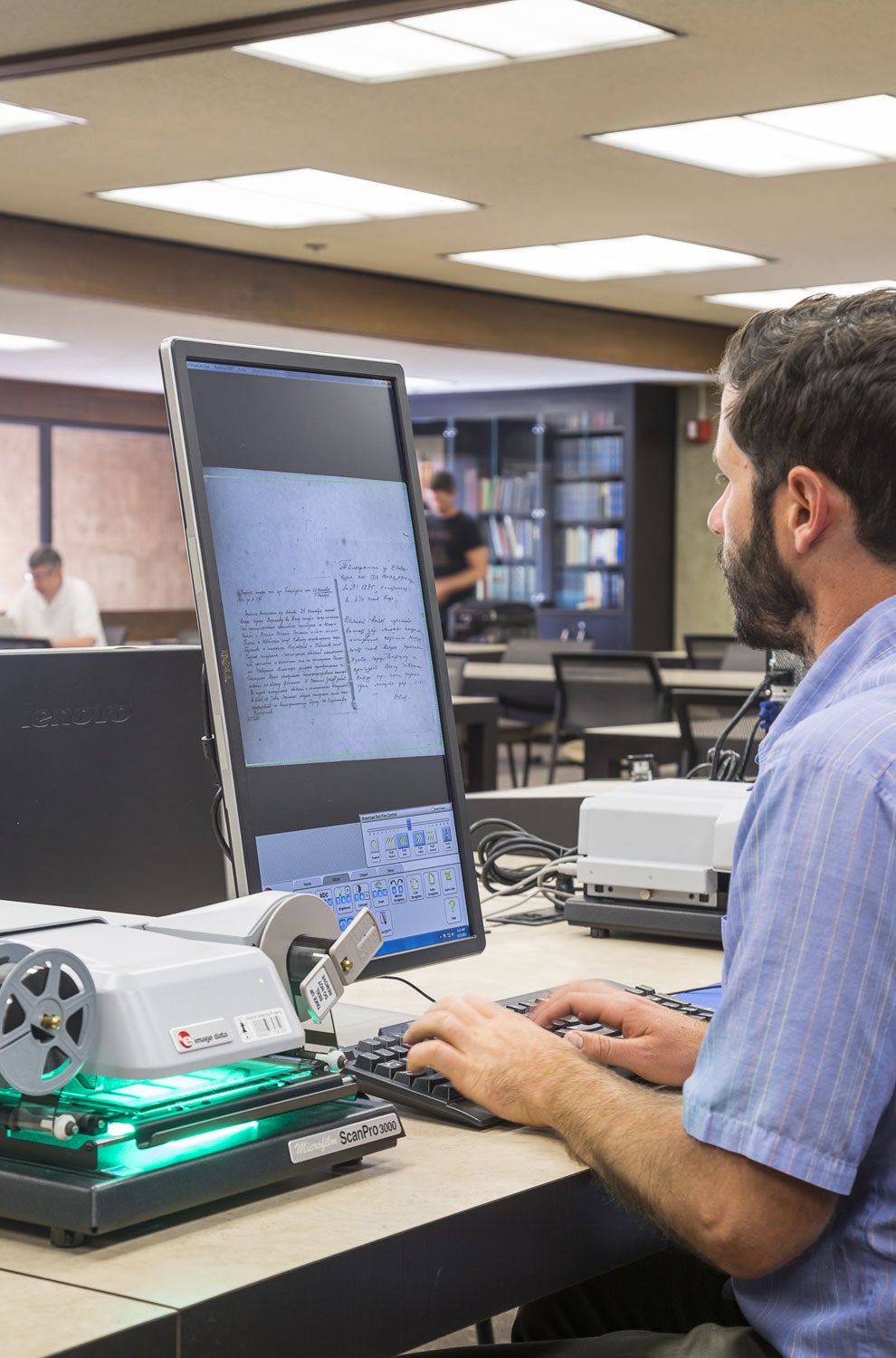When Stanford scholar Lisa Blaydes decided to write a book on Saddam Hussein’s regime in Iraq, she turned to one of most comprehensive collection on the subject – the Ba’ath Party Archives at the Hoover Institution.

The Ba’ath Party Archives at the Hoover Institution offer researchers a trove of insights into recent Iraqi history. (Image credit: Getty Images)
This treasure trove of insights into recent Iraqi history includes more than 10 million digitized page images and 1,500 video files collected from Iraq’s Ba’ath headquarters and other sources. Housed in the Hoover’s Library & Archives, the files shed light on how Iraq was governed and the totalitarian nature of Hussein’s rule. The Iraq Memory Foundation collected the documents, with Hoover receiving the first batch in 2008.
Since 2010, 170 researchers have accessed the documents. In March, representatives from the Human Rights Violators and War Crimes Center – comprising special agents from the FBI, Department of Justice and Department of Homeland Security – visited the collection while on campus.
The War Crimes unit conducts investigations focused on human rights and a collection like the Ba’ath Party archives could potentially assist in such efforts.
In Iraq, the Ba’ath Arab Socialist Party rose to power through a military coup in July 1968. Hussein, who played a key role in that coup, seized total control in 1979. Over time, as the collection shows, party members systematically penetrated all governmental and military institutions. The party members achieved this through an ironclad grip on the lives of government employees and military personnel and the ability to influence governmental decisions at lower levels throughout the country.
Blaydes, a former Hoover National Fellow, described the archives as “invaluable” for her forthcoming book, State of Repression: Iraq Under Saddam Hussein (Princeton University Press, 2018). The Ba’ath Party, she found, used varying mechanisms to encourage loyalty and prevent uprisings.
“The archives covered everyday topics of governance, including the mobilizational activities of the Ba’ath Party to the monitoring political preferences of high school students,” said Blaydes, who is also an associate professor of political science at Stanford and a senior fellow at the Freeman Spogli Institute for International Studies.
Among the most intriguing aspects were the numerous memoranda about “rumors” circulating in Iraqi society during the 1990s and early 2000s.
“These included some that were quite far-fetched, like a rumor that Bill Clinton’s mother was born in Mosul, to the mundane, like a rumor that the price of tomatoes was going to increase,” she said.
Blaydes found more than 2,000 so-called rumors in the Ba’ath Party files; many of them either undermined the regime or sought to mobilize different populations toward some collective action.
Terror, wrought in sometimes utterly mundane ways, was a constant presence in Iraqi society, as the archives revealed to Blaydes. During the mid-1990s, Hussein ordered that people who deserted from the military would have an ear cut off.
“I found one document which showed the number of deserters who had been caught in different parts of the country as well as the number who had had their ears removed. A follow-up memo complained that doctors were not cutting off enough ears, suggesting forms of bureaucratic non-compliance,” Blaydes said.
Blaydes also found that punishment was often meted out against the families of individuals who failed to support the party.
‘Massive information’
The materials are divided into two collections. The larger collection consists of documents created by the Ba’ath Party and other administrative and security agencies – Hiẓb al-Ba’th al-’Arabī al-Ishtirākī Records, 1968–2003. A smaller set of video files and printed matter was created by other parties after the fall of the Ba’ath Party – Muʼassasat al-dhākirah al-ʼIrāqīyah Records, 2003–2010.

The Hoover Institution’s Library & Archives boasts nearly 1 million volumes and more than 6,000 archival collections pertaining to war, revolution and peace. One of them is the Ba’ath Party Archives, with more than 10 million digitized page images and 1,500 video files collected from Iraq’s Ba’ath headquarters and other sources. (Image credit: Tim Griffith)
Eric Wakin, the Robert H. Malott Director of the Library & Archives, said, “The collection provides unique access to the inner workings of a brutal authoritarian regime; researchers gain insight to both elite and foot soldier thinking and practice and can see how detailed the surveillance and coercive measures of Saddam’s state were.”
Researchers must sign an agreement before being granted access to the records because the collection contains information that could be used to identify people. The records may be viewed on computer workstations in the Hoover Archives reading room, with some printed matter available as hard copies.
Joseph Sassoon, an associate professor at Georgetown University, used the Ba’ath collection to write his book, Saddam Hussein’s Ba’th Party: Inside an Authoritarian Regime (Cambridge University Press, 2012).
“Without the Iraqi archives, it would have been impossible for me to research my book on the Ba’ath Party. In fact, we cannot today research any modern Arab country due to the lack of open archives,” he said.
In Iraq’s case, the archives reveal how the ruling party coordinated with the security services and Hussein’s office. “The archives are truly unique in the material they cover, and I think many more books on different aspects of modern Iraq will be written using these archives,” Sassoon said.
He was surprised about the “meticulous filing and cross-referencing utilized for more than 30 years” by the Ba’ath Party as well as the “massive information they gathered about so many individuals from high school age to retirement.” For example, the party collected information on every aspect of the lives of candidate who applied to Iraq’s military colleges and police academies.
Sassoon believes such an archive can help Iraq restore its sense of history and help it chart a stronger future course.
“I think it is important for Iraqi people to see how they were governed for more than three decades and how intrusive was the security regime in their own lives with so many informants and the expectation for utter loyalty from every citizen,” he said, adding that the archives clearly shows how the extent of Hussein’s rule for over two decades.
Finally, the scholars discovered that relatives of “martyrs” in the “Mother of All Battles” (the Ba’ath Party’s euphemism for the first Gulf War) enjoyed abundant promotions and educational opportunities. But those tied to political protesters had limited upward mobility.
Media Contacts
Clifton B. Parker, Hoover Institution: cbparker@stanford.edu, (650) 498-5204